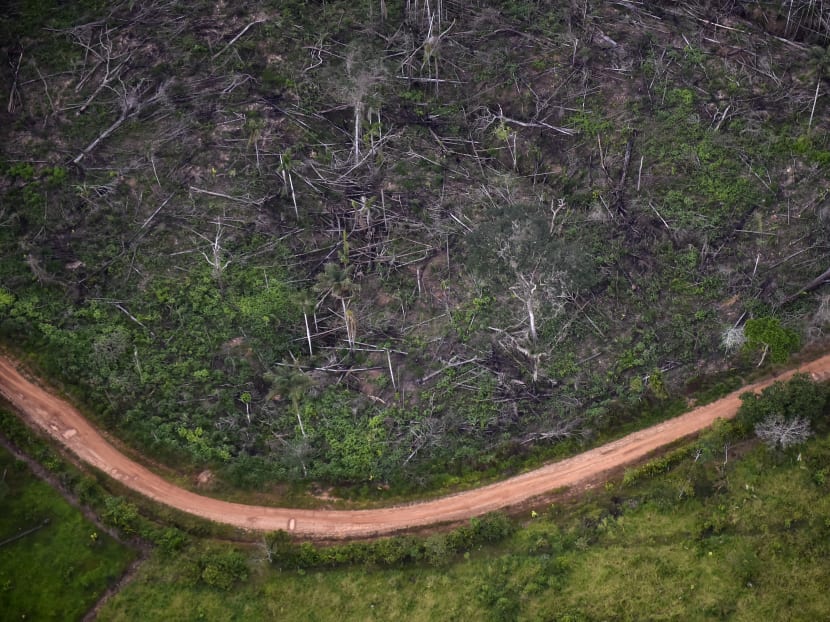World lost 100 million hectares of forest in two decades: UN
PARIS — The world has lost nearly 100 million hectares of forests in two decades, marking a steady decline though at a slower pace than before, a UN agency reported Tuesday.

Deforestation has hit particularly hard sub-Saharan Africa and Southeast Asia, where it has accelerated in the last decade.
PARIS — The world has lost nearly 100 million hectares of forests in two decades, marking a steady decline though at a slower pace than before, a UN agency reported Tuesday.
The proportion of forest to total land area fell from 31.9 per cent in 2000 to 31.2 per cent in 2020, now some 4.1 million hectares, according to the Food and Agriculture Organization (FAO).
It marks "a net loss of almost 100 million hectares of the world’s forests," the FAO said.
Deforestation has hit particularly hard sub-Saharan Africa and Southeast Asia, where it has accelerated in the last decade, but also Latin and Central America, where it has nonetheless slowed down.
Forests are being cut down mainly to make way for crops or farm animals, especially in less developed countries.
In Southeast Asia, forest now covers 47.8 per cent of the land compared to 49 per cent in 2015. In sub-Saharan Africa, it covers 27.8 per cent compared to 28.7 per cent five years ago.
In Indonesia, it is 50.9 per cent, down from 52.5 per cent. In Malaysia, it is 58.2 per cent, down from 59.2 per cent five years ago.
A country strongly focused on agriculture like the Ivory Coast has seen forests reduced to 8.9 per cent of the total land area from 10.7 per cent in 2015. Kenya, Mali and Rwanda have largely held firm against forest loss.
In Latin and Central America, forest covers only 46.7 per cent of the total land, compared to 47.4 per cent five years ago.
In Brazil, forests declined to 59.4 per cent of the country's territory in 2020 from 60.3 per cent in 2015. In Haiti, deforestation has continued apace – falling to 12.6 per cent of the total land area from 13.2 per cent in 2015.
In contrast, in many parts of Asia, Europe and North America forest area has increased or stayed the same in the last five years with policies to restore woodland and allow forests to expand naturally.
In China, forests make up 23.3 per cent, up from 22.3 per cent in 2015. In Japan, they account for 68.4 per cent, the same as it was five years ago.
In France, forests cover 31.5 per cent of the land in 2020, up from 30.7 per cent in 2015. In Italy, they make up 32.5 per cent of the national territory, up from 31.6 five years ago.
In Britain, they make up 13.2 per cent, up from 13 per cent five years ago.
In Canada, it is unchanged at 38.2 per cent, and in the United States, unchanged at 33.9 per cent.
In Australia the figure rose from 17.3 to 17.4 per cent and in New Zealand from 37.4 per cent to 37.6 per cent over the five years. AFP






